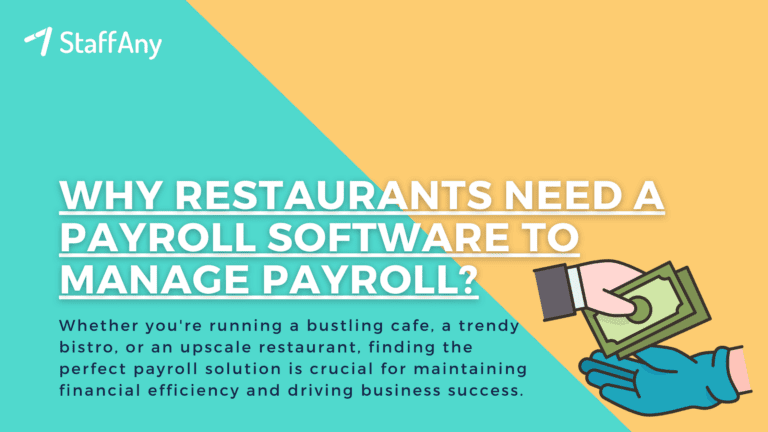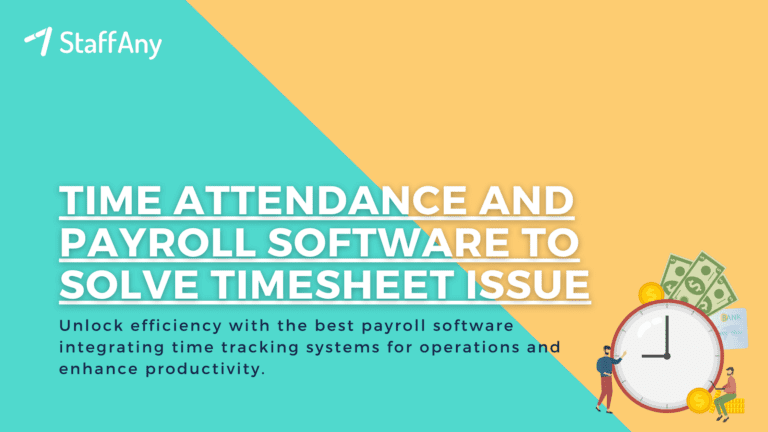As a business owner, providing employee benefits is crucial in attracting and retaining top talent. Not only do employee benefits help to increase job satisfaction and motivation, but they can also positively impact the overall financial health of a company.
In this article, we will explore everything business owners need to know about employee benefits in Malaysia, including what they are, the Employment Act 1955 and employee benefits, types of employee benefits, and why they are important.
What are Employee Benefits?

Employee benefits refer to non-wage compensation that employers offer to their employees. These benefits are in addition to the basic salary or hourly wage paid to employees and are intended to provide financial security and enhance the overall quality of life for employees.
Employee benefits can range from basic necessities like health insurance and paid time off, to more discretionary perks like company-sponsored events and employee wellness programs.
Employee benefits are designed to help employees manage the costs of living and protect their financial well-being. For example, health insurance allows employees to manage the cost of medical expenses, while paid time off provides employees with much-needed rest and relaxation.
Moreover, employee benefits can also help to improve work-life balance, as many benefits, such as flexible work arrangements and employee assistance programs, allow employees to take control of their time and manage stress and personal issues.
Ultimately, employee benefits play a significant role in attracting and retaining talent, as employees are more likely to be satisfied and motivated in their jobs when they have access to comprehensive benefits.
Read more: Understanding the Importance of Human Resource Planning
The Employment Act 1955 and Employee Benefits
The Employment Act of 1955 is a piece of legislation in Malaysia that outlines the minimum benefits employers must provide to their employees. This act sets standards for various employment practices, including minimum wage requirements, hours of work, and overtime pay.
In terms of employee benefits, the act requires employers to provide employees with overtime pay, annual leave, and sick leave.
While the Employment Act of 1955 only requires employers to provide compulsory benefits, many employers choose to offer additional benefits to their employees such as internet or mobile allowance personal or professional training.
These additional benefits can demonstrate an employer’s commitment to the well-being of their employees and increase job satisfaction and motivation.
For instance, offering maternity allowance or hospitalisation leave can help employees manage the demands of their personal lives and improve their overall quality of life.
By providing a comprehensive package of employee benefits, employers can create a positive work environment, increase employee loyalty, and reduce turnover, ultimately saving the company time and resources in the long run.
Read more: 10 Effective Employee Retention Programs to Keep Your Best Talents
9 Common Types of Employee Benefits in Malaysia

There are several types of employee benefits available in Malaysia, and the specific benefits offered can vary depending on the size and type of business. Some common types of employee benefits that are designed for malaysian employees include:
1. Medical Insurance
Many employers in Malaysia offer medical and insurance coverage as benefits. This benefit can include coverage for hospital stays, medical treatments, and prescription drugs. Employers often offer medical insurance to provide financial security for employees and their families in case of unexpected health issues.
2. Mental Healthcare
Mental healthcare is a type of employee benefit that provides employees with access to mental health services, including therapy and counselling. This benefit can help employees manage stress, anxiety, and other mental health issues and improve their overall well-being.
3. Performance Bonus
A performance bonus is a type of employee benefit that rewards employees for their excellent performance. This type of benefit can include cash bonuses, stock options, or other forms of compensation.
Performance bonuses can help to motivate and engage existing employees, as they provide a tangible reward for their hard work and dedication.
4. Pension Plan
A pension plan is a type of employee benefit that provides employees with a source of income in retirement. This type of benefit can include defined benefit plans, where employees receive a fixed benefit in retirement, or defined contribution plans, where employees contribute a set amount to an investment account.
5. Maternity and Paternity Leave
Maternity and paternity leave is a type of employee benefit that provides employees with time off to care for a new child. In Malaysia, the minimum amount of paid maternity leave is 98 days.
On the other hand, the amount of paternity leave offered by employers varies greatly; some employers only provide the legal minimum of 7 days, while others offer as much as 30 days.
Read more: 15 Employee Engagement Activities to Keep Your Staff Happy and Motivated
6. Paid Leave
Paid leave is a type of employee benefit that provides employees with time off from work while still being paid. Paid leave can help employees improve work-life balance, manage the demands of their personal lives, and improve their overall well-being.
7. Sick Leave
Sick leave is a type of employee benefit that provides employees with paid time off work when they are unable to work due to illness or injury. This type of benefit can help employees recover from illness and injury without financial strain and improve their overall well-being.
8. Flexible Work Hours
Flexible working hours is a type of employee benefit that allows employees to adjust their work schedule to meet their personal needs. Flexible work hours essentially allow employees to start their shifts sooner in the day or later than scheduled.
9. Public Holidays
According to Malaysian labor laws, employers must ensure their employees are paid during public holidays. If any employer requires their staff to work on public holidays, then the employees must be compensated double the usual pay rate. And if the employees must work overtime during a public holiday, then they must receive triple pay.
Read more: Why Is Employee Engagement Important For Your Business?
Retirement Preparation
The Malaysian Labour Law regulates that employers must provide benefits for employees preparing for retirement. Two benefits are specifically designed for retirement. The first is the Social Security Organisation (SSO), and the second is Employees Provident Fund (EPF).
It is compulsory to clearly outline those two benefits within the offer letter upon hiring new employees. Other thing to note is the employee’s monthly salary will be deducted to cover the SSO and EPF benefits.
Read more: Understanding Employee Management System and Its Benefits
The Importance of Employee Benefits

According to a survey conducted by Hays Malaysia, nearly half (46%) of employees in Malaysia expressed dissatisfaction with their current pay. As a result, over half (52%) of them are actively looking for new employment.
Contrary to popular belief, salary alone is not a factor that keeps employees in a company. Instead, the key factors that influence employee retention are:
– Work-life balance (41%)
– Salary or benefits package (38%)
– Work location (37%)
– Management style and company culture (36%)
– Training and development opportunities (26%)
Providing employee benefits is crucial for attracting and retaining top talent. Not only do employee benefits help to increase job satisfaction and motivation, but they can also positively impact the overall financial health of a company.
By providing benefits, employers can demonstrate their commitment to the well-being of their employees and create a positive work environment.
Additionally, offering a comprehensive package of employee benefits can also increase employee loyalty and reduce turnover, which can, in turn, ultimately save the company time and resources in the long run.
Read more: Graveyard Shift: Meaning, Advantages, and Disadvantages
As a business owner, it’s important to ensure your employees are receiving the benefits they deserve. But managing employee benefits can be a challenge, especially if you’re using manual timesheet systems. If you’re looking for a way to streamline your employee benefits management, consider using StaffAny’s smart timesheet.
StaffAny can help automate overtime calculations, track work performance, and flag any anomalies for quick resolution, ensuring accurate payroll data in real-time.
Additionally, our time-tracking assistant can also help automates rounding, prevent early clock-ins, and enforce auto clock-out to maintain budgeted costs. Visit us here to get more information!











